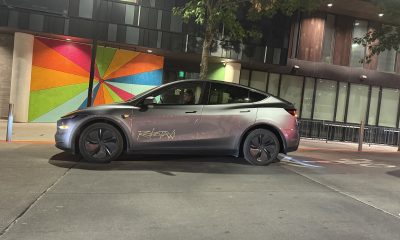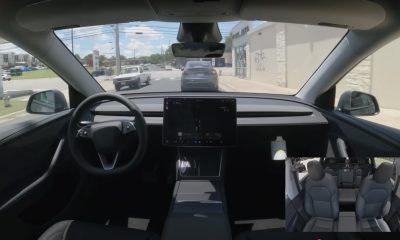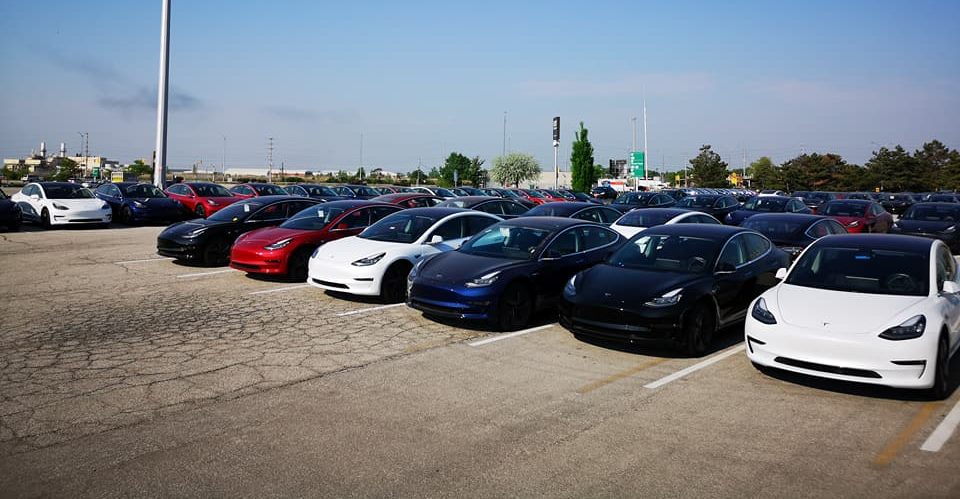

Firmware
Tesla’s $35k base Model 3 and HW3 upgrade will usher in Elon Musk’s ride-sharing vision
Elon Musk recently announced on Twitter that in about 6 months, all cars produced by Tesla would be equipped with upgraded hardware, which includes a custom chip that’s specifically designed for autonomous driving. With HW3 installed on all its vehicles, even the company’s entry-level vehicle – the $35,000 base Model 3 – would have the potential of becoming a full self-driving car in the future.
Among the reasons behind the Model 3’s long waiting list is the electric sedan’s starting price of $35,000. At such a price point, the base Model 3 could become a true fossil fuel car killer, costing just a hair higher than the top-of-the-line Toyota Camry XSE V6, which is priced at $34,950. Add the advantages of always leaving the house with a “full tank” thanks to home charging solutions and low maintenance costs, and the base Model 3 becomes an even more attractive vehicle.
Back in August, Worm Capital analysts Eric Markowitz and Dan Crowley published a report after an extensive tour of Gigafactory 1. During the analysts’ tour, Tesla’s head of investor relations Martin Viecha reportedly noted that production of the Model 3 in Standard trim would start sometime in the “next 8 months.” Considering Viecha’s timeframe, it seems safe to infer that by April or May 2019, the $35,000 Model 3 would be in production.
Keeping Elon Musk’s estimated timeline for the rollout of Tesla’s HW3 in mind, the $35,000 Model 3’s production could very well hit its stride just as the company is introducing HW3 to its fleet. These developments, ultimately, could pave the way for the eventual creation of Elon Musk’s vision of an autonomous ride-sharing service – the Tesla’s Network.
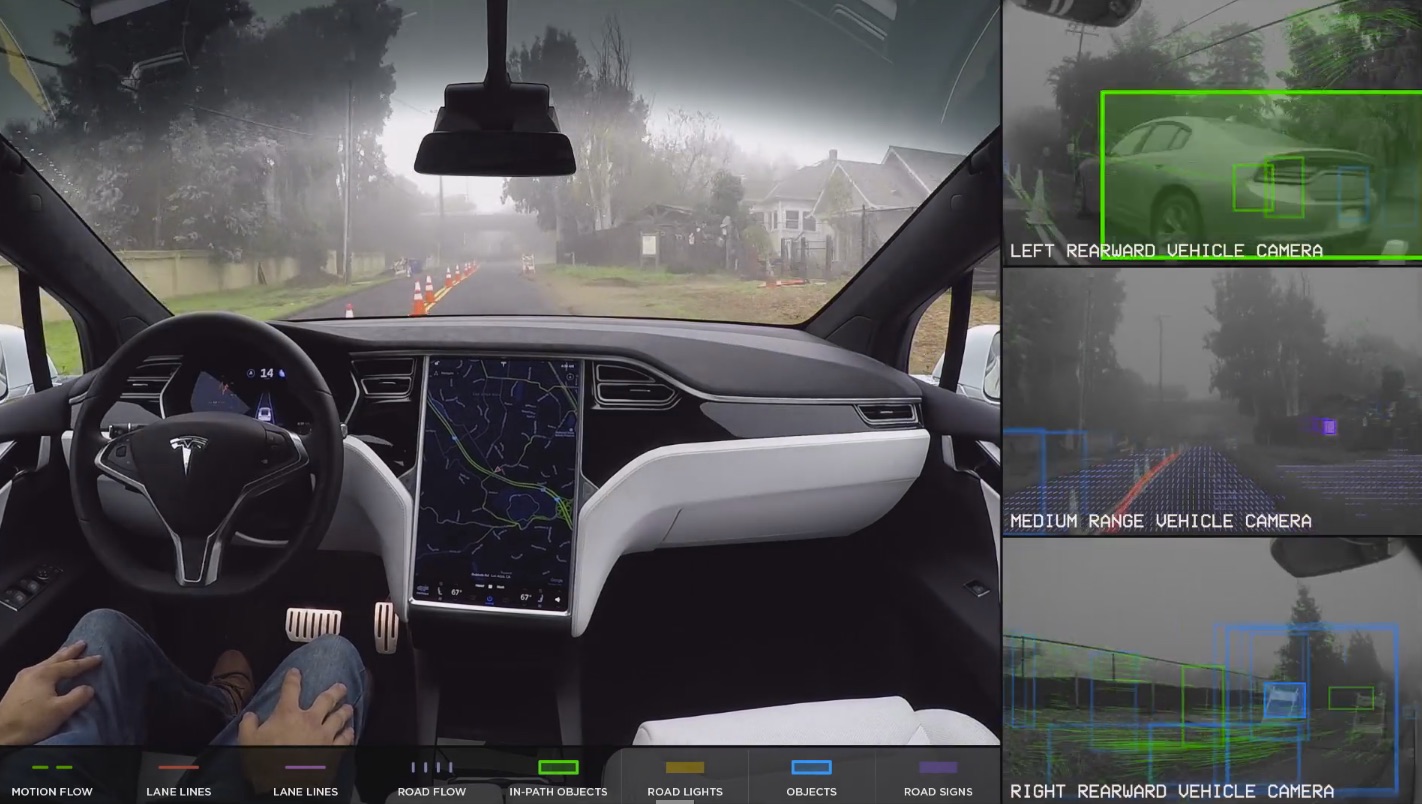
The Tesla Network was mentioned by Musk back in 2016 when he published his Master Plan, Part Deux. Musk suggested then that Tesla owners can have their vehicles pay for themselves by allowing them to be used in the Tesla Network. The CEO further noted that Tesla would operate its own fleet of autonomous cars in cities, to ensure that commuters can always hail a ride when needed. Musk teased some ideas for the Tesla Network earlier this year during the Q1 2018 earnings call as well, when he described the system as similar to a “robo-Lyft or robo-Uber.”
“For the whole sort of system to work, you need all the pieces in place. You need to have full autonomy, full 4 or 5, and obviously a lot of cars in the road, and then build the software infrastructure behind that to enable shared autonomy, so to help enable people to share their cars and be able to offer their cars as effectively, kind of a robo-Lyft or robo-Uber. It’s sort of like a combination of Uber, Lyft and Airbnb type of thing, where you can own your car and have a higher percent usage of an autonomous electric car. You can say it’s available generally to anyone who wants to use it when you’re not using it. You can recall it at will. You can restrict usage to only friends and family or only users who are 5-star.”
A base Model 3 equipped with Autopilot and Full Self-Driving would fit perfectly in this scenario. Such a vehicle, after all, is equipped with 220 miles of range per charge, which should prove adequate for intracity travel. An investment of around $43,000 (comprised of $35,000 for the car, $5,000 Autopilot, and $3,000 for Full Self-Driving), after all, could be deemed justifiable by numerous owners who wish to acquire a vehicle that can generate income on its own. Tesla’s potential as a provider of autonomous ride-hailing services has been pointed out as a huge income opportunity by ARK Invest CIO and founder Cathie Wood, whose firm currently has a long-term price target of $4,000 per share on Tesla stock. Explaining her estimates in a letter to Elon Musk earlier this year, Wood noted that Tesla is poised to be a leader in the autonomous ride-sharing market.
“Our $4,000 price target assumes that Tesla evolves from a hardware manufacturer with 19% gross margins to a company generating most of its profits from Mobility-as-a-Service (MaaS), a business that we believe will enjoy 80% gross margins. In the $4,000 scenario, our assumptions are conservative: we incorporate profits only from cars and certain autonomous taxi networks, not from trucks, drones, utility-scale energy storage, or the MaaS opportunity in China.”
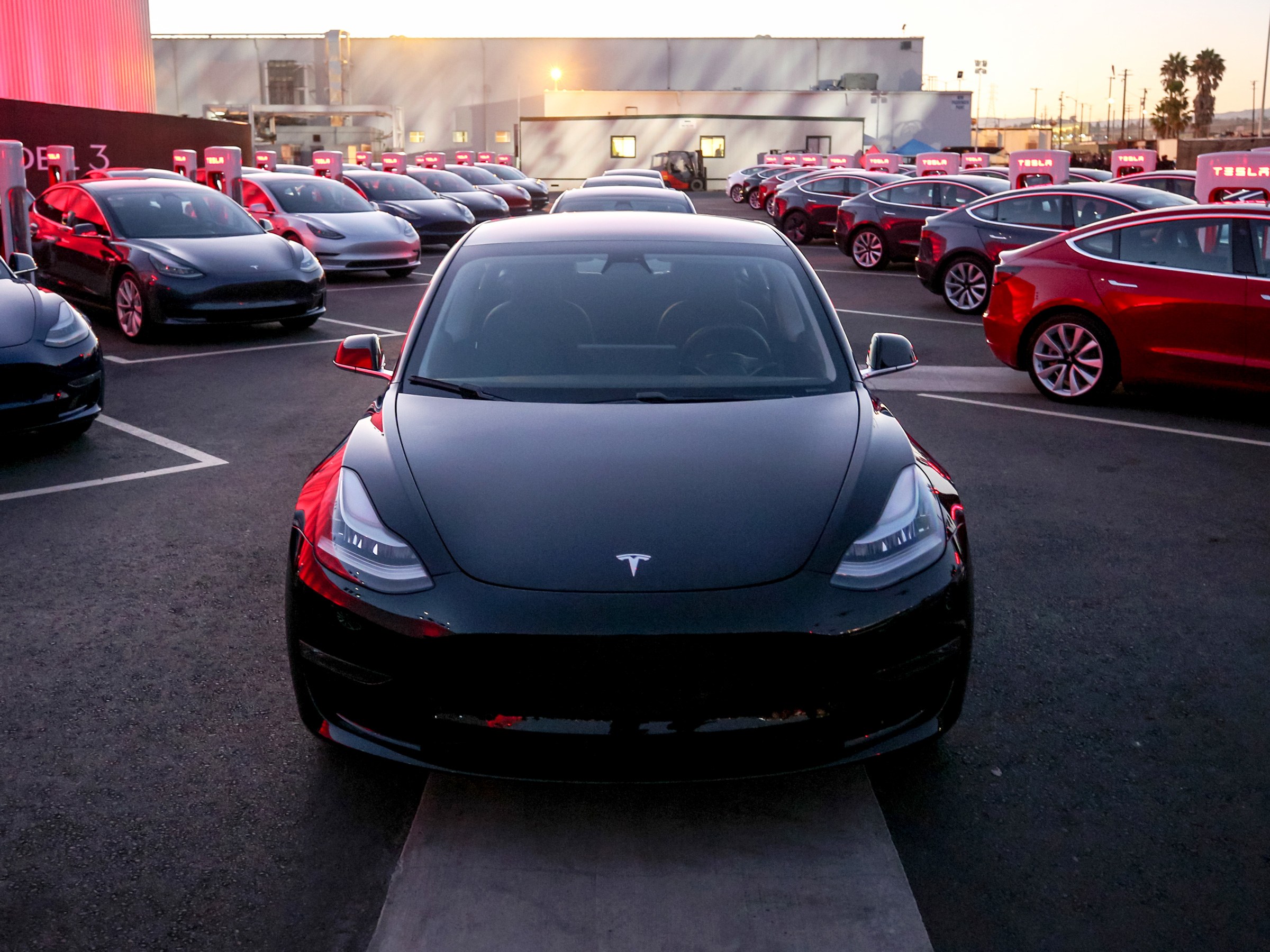
ARK Invest’s forecasts for Tesla in the autonomous ride-sharing market is not farfetched. While self-driving taxis are only being utilized in incredibly limited and controlled areas today, Wall Street has taken notice of the opportunity offered by the emerging industry. In August alone, Morgan Stanley analysts led by Brian Nowak stated that Waymo, Google’s self-driving unit, could be worth $175 billion, up $100 billion from the bank’s initial estimates. Nowak listed three income streams that justify Waymo’s $175 billion valuation – autonomous taxis, estimated to be worth $80 billion, logistics services through self-driving vehicles that could be worth $90 billion, and $7 billion from software licensing. The potential of Waymo’s autonomous cars has also been given a valuation of $119 billion by Mark Mahaney of RBC Capital Markets, and $135 billion by Eric Sheridan of UBS.
As Elon Musk stated earlier this year, Tesla would have to achieve Level 4 of 5 autonomy before the company could introduce the Tesla Network. That said, Tesla seems to be making moves in the development of self-driving technology. Near the end of the third quarter, for one, a leaked email from Elon Musk to Tesla’s employees revealed that the electric car maker is set to conduct an incentivized beta test program for its Full Self-Driving suite, where employees will receive free Autopilot, FSD, and PUP on their vehicles provided that they share 300 to 400 hours of real-world driving feedback.
Ultimately, it might still take years before regulators approve the operation of an autonomous ride-sharing service. As soon as it does, though, Tesla would likely be ready to pounce on the market, powered by HW3 and a fleet of base Model 3.
Firmware
Tesla mobile app shows signs of upcoming FSD subscriptions
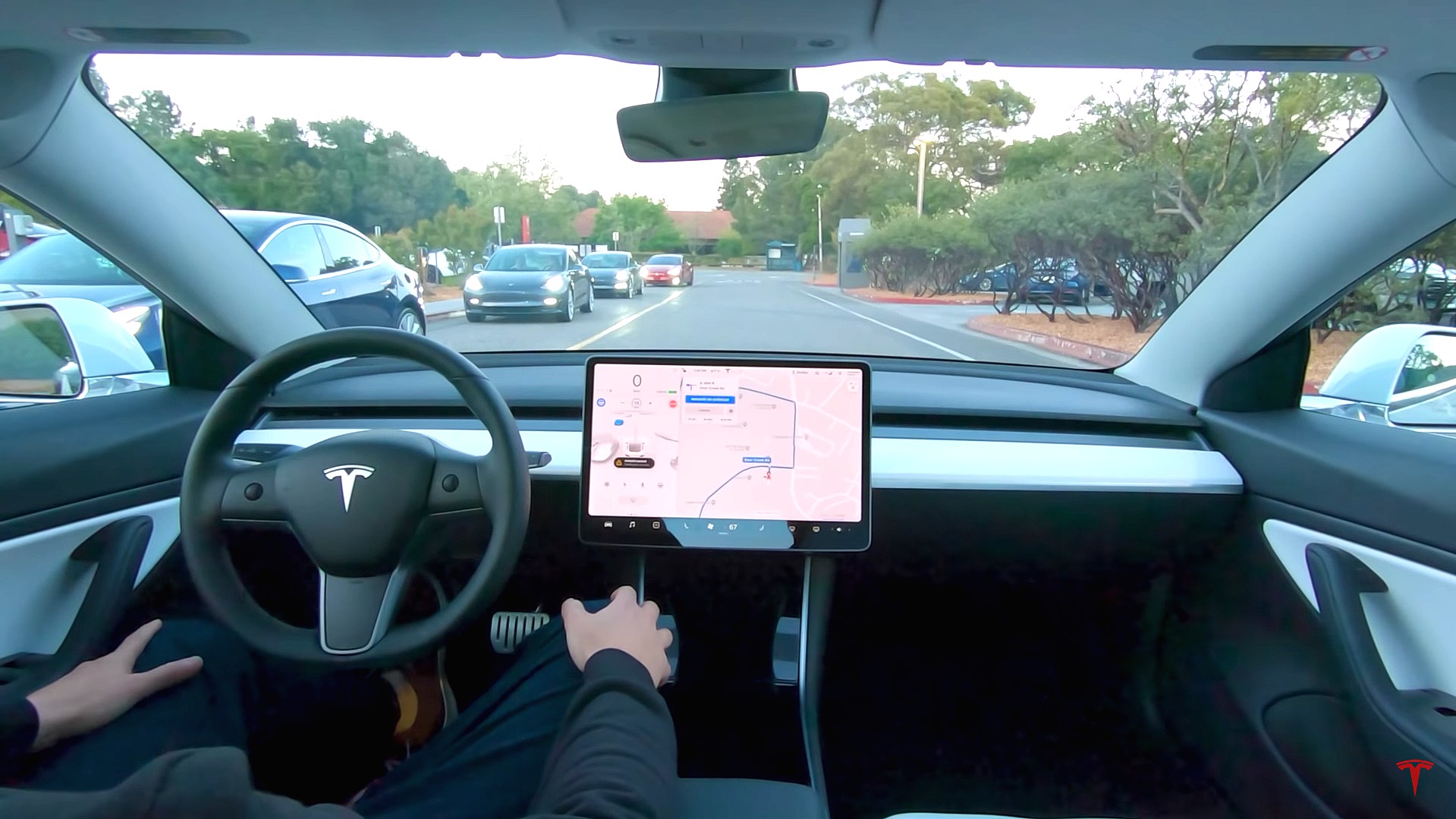
It appears that Tesla may be preparing to roll out some subscription-based services soon. Based on the observations of a Wales-based Model 3 owner who performed some reverse-engineering on the Tesla mobile app, it seems that the electric car maker has added a new “Subscribe” option beside the “Buy” option within the “Upgrades” tab, at least behind the scenes.
A screenshot of the new option was posted in the r/TeslaMotors subreddit, and while the Tesla owner in question, u/Callump01, admitted that the screenshot looks like something that could be easily fabricated, he did submit proof of his reverse-engineering to the community’s moderators. The moderators of the r/TeslaMotors subreddit confirmed the legitimacy of the Model 3 owner’s work, further suggesting that subscription options may indeed be coming to Tesla owners soon.
Did some reverse engineering on the app and Tesla looks to be preparing for subscriptions? from r/teslamotors
Tesla’s Full Self-Driving suite has been heavily speculated to be offered as a subscription option, similar to the company’s Premium Connectivity feature. And back in April, noted Tesla hacker @greentheonly stated that the company’s vehicles already had the source codes for a pay-as-you-go subscription model. The Tesla hacker suggested then that Tesla would likely release such a feature by the end of the year — something that Elon Musk also suggested in the first-quarter earnings call. “I think we will offer Full Self-Driving as a subscription service, but it will be probably towards the end of this year,” Musk stated.
While the signs for an upcoming FSD subscription option seem to be getting more and more prominent as the year approaches its final quarter, the details for such a feature are still quite slim. Pricing for FSD subscriptions, for example, have not been teased by Elon Musk yet, though he has stated on Twitter that purchasing the suite upfront would be more worth it in the long term. References to the feature in the vehicles’ source code, and now in the Tesla mobile app, also listed no references to pricing.
The idea of FSD subscriptions could prove quite popular among electric car owners, especially since it would allow budget-conscious customers to make the most out of the company’s driver-assist and self-driving systems without committing to the features’ full price. The current price of the Full Self-Driving suite is no joke, after all, being listed at $8,000 on top of a vehicle’s cost. By offering subscriptions to features like Navigate on Autopilot with automatic lane changes, owners could gain access to advanced functions only as they are needed.
Elon Musk, for his part, has explained that ultimately, he still believes that purchasing the Full Self-Driving suite outright provides the most value to customers, as it is an investment that would pay off in the future. “I should say, it will still make sense to buy FSD as an option as in our view, buying FSD is an investment in the future. And we are confident that it is an investment that will pay off to the consumer – to the benefit of the consumer.” Musk said.
Firmware
Tesla rolls out speed limit sign recognition and green traffic light alert in new update
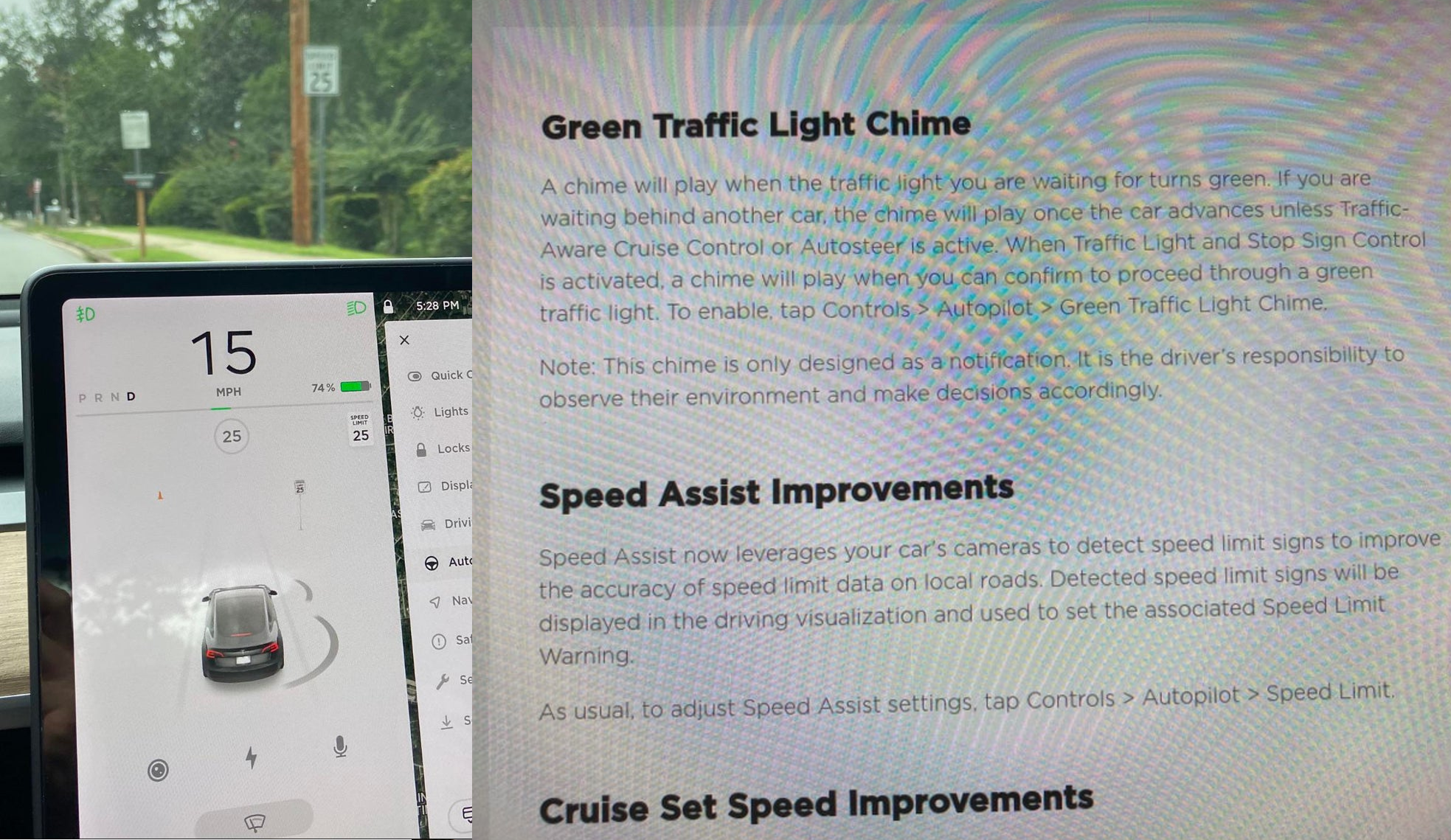
Tesla has started rolling out update 2020.36 this weekend, introducing a couple of notable new features for its vehicles. While there are only a few handful of vehicles that have reportedly received the update so far, 2020.36 makes it evident that the electric car maker has made some strides in its efforts to refine its driver-assist systems for inner-city driving.
Tesla is currently hard at work developing key features for its Full Self-Driving suite, which should allow vehicles to navigate through inner-city streets without driver input. Tesla’s FSD suite is still a work in progress, though the company has released the initial iterations of key features such Traffic Light and Stop Sign Control, which was introduced last April. Similar to the first release of Navigate on Autopilot, however, the capabilities of Traffic Light and Stop Sign Control were pretty basic during their initial rollout.
2020.36 Showing Speed Limit Signs in Visualization from r/teslamotors
With the release of update 2020.36, Tesla has rolled out some improvements that should allow its vehicles to handle traffic lights better. What’s more, the update also includes a particularly useful feature that enables better recognition of speed limit signs, which should make Autopilot’s speed adjustments better during use. Following are the Release Notes for these two new features.
Green Traffic Light Chime
“A chime will play when the traffic light you are waiting for turns green. If you are waiting behind another car, the chime will play once the car advances unless Traffic-Aware Cruise Control or Autosteer is active. When Traffic Light and Stop Sign Control is activated, a chime will play when you can confirm to proceed through a green traffic light. To enable, tap Controls > Autopilot > Green Traffic Light Chime.
“Note: This chime is only designed as a notification. It is the driver’s responsibility to observe their environment and make decisions accordingly.”
Speed Assist Improvements
“Speed Assist now leverages your car’s cameras to detect speed limit signs to improve the accuracy of speed limit data on local roads. Detected speed limit signs will be displayed in the driving visualization and used to set the associated Speed Limit Warning.
“As usual, to adjust Speed Assist settings, tap Controls > Autopilot > Speed Limit.”
Footage of the new green light chime in action via @NASA8500 on Twitter ✈️ from r/teslamotors
Amidst the rollout of 2020.36’s new features, speculations were abounding among Tesla community members that this update may include the first pieces of the company’s highly-anticipated Autopilot rewrite. Inasmuch as the idea is exciting, however, Tesla CEO Elon Musk has stated that this was not the case. While responding to a Tesla owner who asked if the Autopilot rewrite is in “shadow mode” in 2020.36, Musk responded “Not yet.”
Firmware
Tesla rolls out Sirius XM free three-month subscription
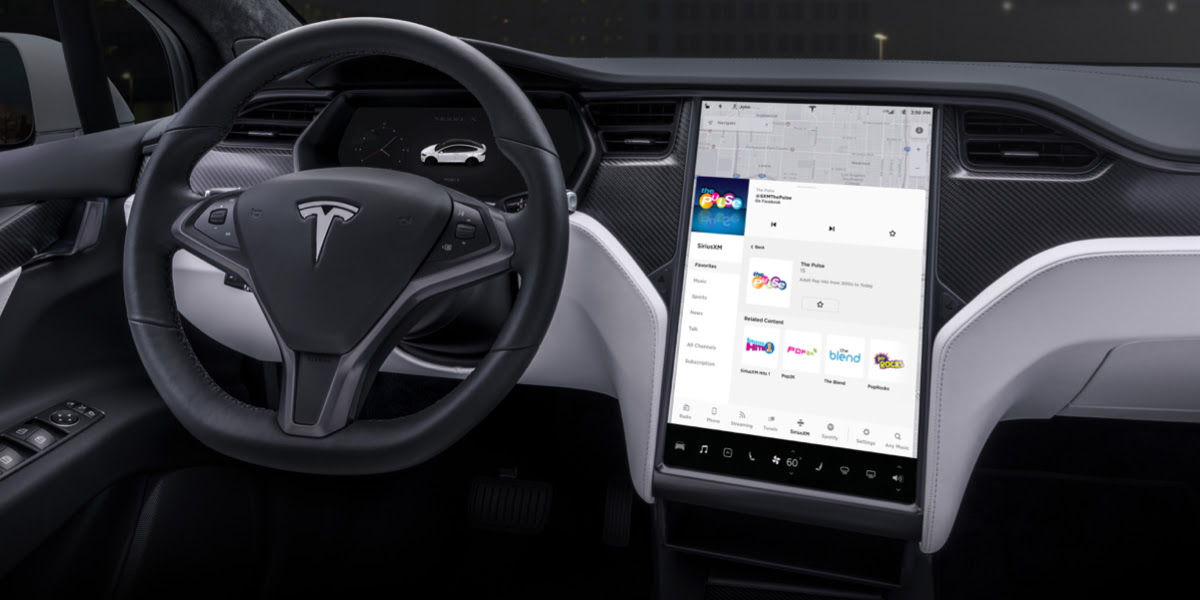
Tesla has rolled out a free three-month trial subscription to Sirius XM, in what appears to be the company’s latest push into making its vehicles’ entertainment systems more feature-rich. The new Sirius XM offer will likely be appreciated by owners of the company’s vehicles, especially considering that the service is among the most popular satellite radios in the country today.
Tesla announced its new offer in an email sent on Monday. An image that accompanied the communication also teased Tesla’s updated and optimized Sirius XM UI for its vehicles. Following is the email’s text.
“Beginning now, enjoy a free, All Access three-month trial subscription to Sirius XM, plus a completely new look and improved functionality. Our latest over-the-air software update includes significant improvements to overall Sirius XM navigation, organization, and search features, including access to more than 150 satellite channels.
“To access simply tap the Sirius XM app from the ‘Music’ section of your in-car center touchscreen—or enjoy your subscription online, on your phone, or at home on connected devices. If you can’t hear SiriusXM channels in your car, select the Sirius XM ‘Subscription’ tab for instruction on how to refresh your audio.”
Tesla has actually been working on Sirius XM improvements for some time now. Back in June, for example, Tesla rolled out its 2020.24.6.4 update, and it included some optimizations to its Model S and Model X’s Sirius XM interface. As noted by noted Tesla owner and hacker @greentheonly, the source code of this update revealed that the Sirius XM optimizations were also intended to be released to other areas such as Canada.
Interestingly enough, Sirius XM is a popular feature that has been exclusive to the Model S and X. Tesla’s most popular vehicle to date, the Model 3, is yet to receive the feature. One could only hope that Sirius XM integration to the Model 3 may eventually be included in the future. Such an update would most definitely be appreciated by the EV community, especially since some Model 3 owners have resorted to using their smartphones or third-party solutions to gain access to the satellite radio service.
The fact that Tesla seems to be pushing Sirius XM rather assertively to its customers seems to suggest that the company may be poised to roll out more entertainment-based apps in the coming months. Apps such as Sirius XM, Spotify, Netflix, and YouTube, may seem quite minor when compared to key functions like Autopilot, after all, but they do help round out the ownership experience of Tesla owners. In a way, Sirius XM does make sense for Tesla’s next-generation of vehicles, especially the Cybertruck and the Semi, both of which would likely be driven in areas that lack LTE connectivity.
-

 News5 days ago
News5 days agoTesla Robotaxi’s biggest challenge seems to be this one thing
-

 News2 weeks ago
News2 weeks agoTesla confirms massive hardware change for autonomy improvement
-

 Elon Musk2 weeks ago
Elon Musk2 weeks agoElon Musk slams Bloomberg’s shocking xAI cash burn claims
-

 News2 weeks ago
News2 weeks agoTesla China roars back with highest vehicle registrations this Q2 so far
-

 News2 weeks ago
News2 weeks agoTesla features used to flunk 16-year-old’s driver license test
-

 News2 weeks ago
News2 weeks agoTexas lawmakers urge Tesla to delay Austin robotaxi launch to September
-

 News2 weeks ago
News2 weeks agoTesla dominates Cars.com’s Made in America Index with clean sweep
-

 News2 weeks ago
News2 weeks agoTesla’s Grok integration will be more realistic with this cool feature






